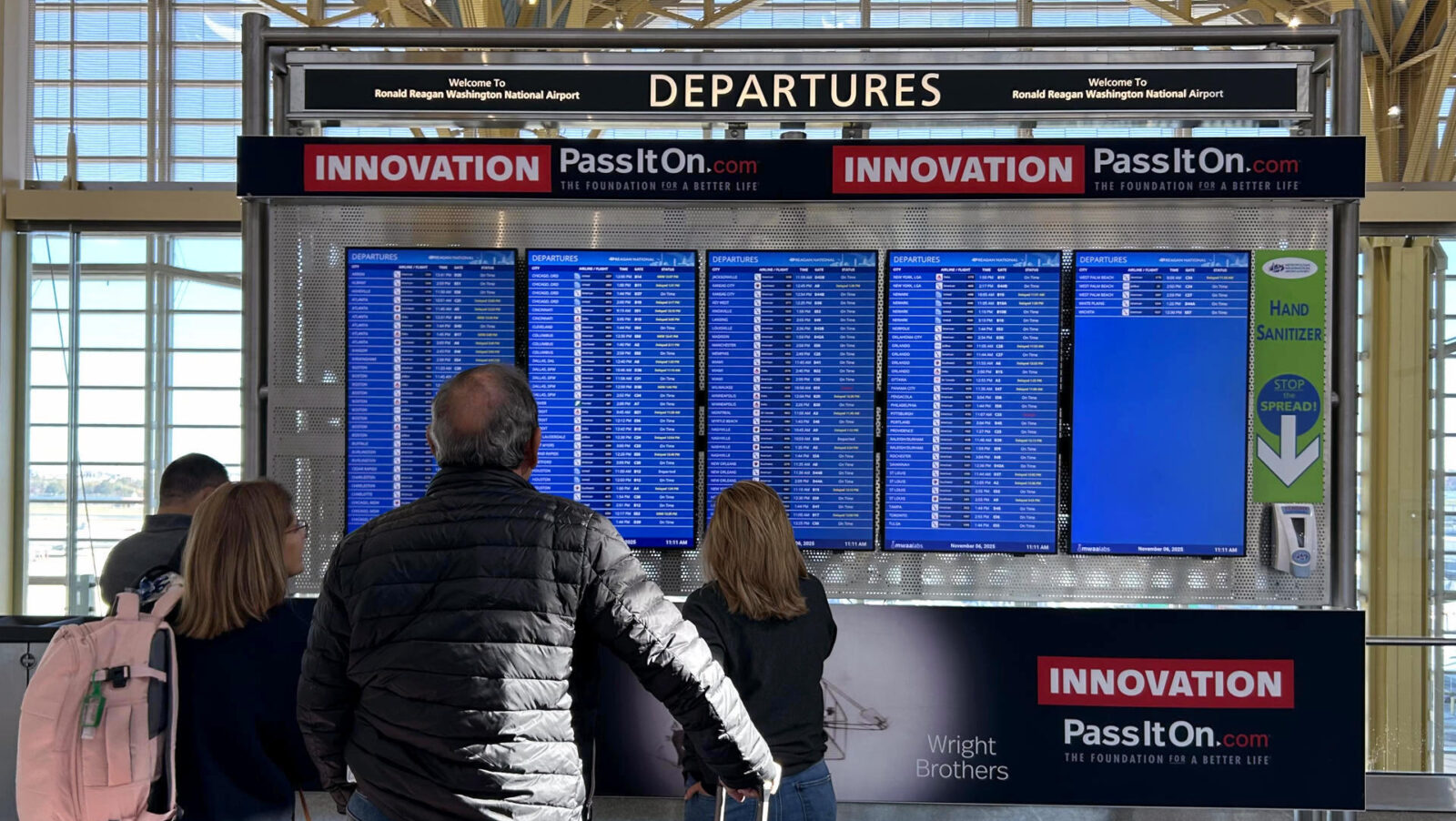Good morning.
Maybe they were just picking up on something. In a blog post on Thursday, Collins English Dictionary declared vibe coding its Word of the Year eight weeks before the year’s even over. Popularized by OpenAI cofounder Andrej Karpathy, the term refers to someone asking artificial intelligence to write computer code for them. A shorthand for increasing human reliance on AI, it’s caught on in Silicon Valley: Y Combinator CEO Garry Tan said in March that 25% of the startups in the accelerator’s cohort generated 95% of their code using large language models.
Proponents have argued that vibe coding will open doors in business to people who lack technical expertise but have great ideas. On the other hand, there has already been some pushback against clankers, a derogatory term for robots and AI and one of Collins’ runner-up words. But there will likely always be a place in the Silicon Valley broligarchy for humans who know their way around things like aura farming and biohacking — three more runner-up words.
*Presented by Global X ETFs. Stock data as of market close on November 6, 2025.
FAA Cuts Flights Amid Government-Shutdown Pressure

Put your pie-dough prep on hold, because the government’s ongoing shutdown could leave some seats empty at Thanksgiving dinners across the country. The FAA said Wednesday it’ll reduce flights at 40 of the busiest US airports, including major connecting hubs in Atlanta, Dallas and Denver.
Delays and cancellations are expected to pick up as air traffic controllers, who’ll miss their second straight paycheck next week, call in sick to protest and prioritize second jobs. Staffing shortages at FAA facilities have quadrupled compared with the same time last year, CNN found. The FAA said the flight cuts are intended to prevent safety issues as more air traffic controllers potentially call out.
The agency aims to reduce flight traffic by 10% starting as soon as Friday, if no shutdown deal is reached, affecting 1,800 flights and 268,000 seats, according to data firm Cirium. Space launches and small aircraft travel will also be impacted.
Clipped Wings
Investors reacted on Thursday, and shares of airlines including American, Delta and United dipped. United said it’ll offer refunds to customers who don’t want to fly during the FAA’s drawdown, while Frontier encouraged customers to book a backup ticket if they don’t want to risk being stranded (on-brand for an airline that charges for water).
While major airlines said they’ll comply with the FAA’s plan, the timing could create turbulence in otherwise clear skies:
- Airlines cut their forecasts earlier this year as Americans stayed home to save money and international travelers, particularly Canadians, canceled their US vacations. The summer quarter saw a pick-up, with American and Delta both beating analysts’ earnings expectations. Still, summer has become a weaker season for airlines as schools start earlier and tourists skip the crowds, opting for more low-season trips.
- The industry is looking forward to the holidays to help it regain altitude. Thanksgiving and Christmas air travel is expected to beat records this year, Cirium found; United’s CEO also said this month that he expects the season to be record-breaking. The ongoing shutdown and the FAA’s travel drawdown could convince customers to delay booking and possibly cancel those trips, however.
Grounded: The shutdown is the longest in US history and will likely also have the greatest economic impact. While most shutdowns are followed by a quick bounceback, at 38 days and counting, this one is expected to see billions lost for good. The US Travel Association said the closure has cost the American travel sector more than $5 billion so far. Zooming out, the Congressional Budget Office estimated that US GDP will irretrievably lose between $7 billion and $14 billion. Goldman Sachs found that, even if the shutdown ends next week, it’ll slow fourth-quarter GDP growth by more than 1%. On the upside, delayed government spending could end up boosting the economy early next year.
The Next Phase of the AI Revolution Is Taking Shape
Phase 1 of the AI gold rush created more than 500,000 new millionaires, fueled by the companies that built its foundations.
But history suggests the real opportunity may come next.
JPMorgan analysts call this shift “AI 2.0,” where software firms and innovators use AI to reshape industries, not just supply the infrastructure behind it.
It’s a pattern straight out of the early 2000s: First came the infrastructure players like Cisco and HP, then the platform disruptors like Amazon and Netflix. Phase 2 was where the real wealth was created.
Now, The Motley Fool’s analysts have identified five companies they believe are positioned to lead this next phase, including one 178x smaller than Nvidia.
CEO Says AstraZeneca Can ‘Absorb’ Costs of Trump-Driven US Deals
Pharmaceutical companies around the world are under massive pressure from President Donald Trump to lower drug prices and manufacture them on American shores.
UK drugmaker AstraZeneca, which reported ascendant results on Thursday, is taking him up on both suggestions. A good quarter certainly helps. The company’s net profit rose 77% year-over-year to $2.53 billion in the third quarter, and revenue grew 12% to $15.2 billion, beating analysts’ expectations.
London Stalling
AstraZeneca is the biggest drugmaker in Britain, and its £193 billion ($253 billion) market capitalization tops the London Stock Exchange. That makes its symbolic and literal importance to the shrinking and struggling bourse practically seismic. Lately, however, the company’s attention has been diverted across the pond. Shareholders voted resoundingly (99.36%) on Monday in favor of plans to list directly on the New York Stock Exchange, while also remaining on the LSE. And, last month, AstraZeneca became the second major pharmaceutical company to strike a deal with the Trump administration on drug prices, agreeing to charge Medicaid the lowest price available in other developed countries and offer direct-to-consumer discounts up to 80%. In exchange, the Trump administration gave the company a three-year reprieve from 100% tariffs on branded pharmaceutical imports.
In the meantime, AstraZeneca plans to invest $50 billion to boost US manufacturing and research by 2030 to shore up its position in the crucial market. The US accounts for over 40% of revenue, which CEO Pascal Soriot said Thursday could be “half of our potential revenue by 2030.” He also issued warnings to Europe and the UK, where R&D spending lags behind that of the world’s two largest economies, that they might lose their health sovereignty. Separately:
- AstraZeneca, which made $54 billion in revenue last year, reiterated a forecast that 2025 sales will grow “by a high single-digit percentage.”
- The company has targeted $80 billion in revenue by 2030 and says it can “absorb the impact of” its US deal.
Joining the Fray: AstraZeneca’s powerhouse is its oncology portfolio, which accounted for 44% of revenue last quarter. The company is also joining the weight loss fray, where Novo Nordisk and Eli Lilly have made billions. AstraZeneca said Thursday that it exercised an option to acquire SixPeaks Bio for $170 million, the cost of shares it didn’t already own. The Swiss company is developing weight-management drugs that preserve lean muscle mass, which is often lost by users of GLP-1 drugs like Novo’s Wegovy and Lily’s Zepbound.

Ease Into Your Next Chapter. You’ve worked hard to save for retirement, now let your portfolio do some heavy lifting. The Definitive Guide to Retirement Income covers seven ways you can use a $1M+ portfolio to generate income so you can enjoy life. Plus, get insights to help you understand your cash flow needs and manage your monthly expenses. Get the guide.
Tesla Votes to Make Elon Musk the $1 Trillion Man
To quote Marcus Aurelius: The true worth of a man is to be measured by the objects he pursues.
Well, Elon Musk is pursuing a global fleet of humanoid robots, another fleet of autonomous robotaxis and some 20 million electric vehicles to be deployed within a decade. And for that, some 75% of Tesla shareholders, after a vote on Thursday, have decided he’s worth $1 trillion.
Who’s in the Driver’s Seat?
Not everyone was on board for the ultra-massive pay package. Proxy advisory firms ISS and Glass Lewis both recommended that shareholders vote against the payday, while Norway’s sovereign wealth fund, a top Tesla shareholder, said it would cast a “No” vote. Ditto the state retirement funds of California and New York. (Also in opposition? Pope Leo XIV.) On the pro side: Charles Schwab’s asset management arm, the State Board of Administration of Florida, as well as longtime Tesla bulls Wedbush Securities analyst Dan Ives and ARK Invest CEO Cathie Wood.
In a letter to shareholders earlier this week, Tesla chair Robyn Denholm made a simple argument for why the pay package was necessary: Without it, Musk could (or maybe would) leave Tesla, which would leave the company without a leader it will need if it ever wants to achieve its promise of sky-high growth. And Musk’s pay package, while exorbitant, is tied to making that promise a reality:
- Tesla stock, up nearly 18% year-to-date, is trading at a price-to-earnings ratio of almost 300. That’s way above the roughly 15x average of the rest of the US automotive industry, and above the 53x ratio of Nvidia, the Magnificent Seven company with the second-highest P/E ratio behind Tesla.
- In other words, massive growth is inherent to Tesla’s valuation. For Musk to secure the whole bag, Tesla must, over the next decade, reach 20 million delivered EVs (up from around 9 million so far), 10 million active full-self driving subscriptions, 1 million robots and eventually, a market cap of $8.5 trillion, up from $1.54 trillion today.
Robot Takeover: Scoring the full reward would boost Musk’s 13% ownership stake of Tesla to 25%, while giving him more voting power over the company. In the company’s third-quarter earnings call in October, Musk emphasized his desire for more control: “If we build this robot army, do I have at least a strong influence over that robot army? I don’t feel comfortable building that robot army if I don’t have at least a strong influence.”
Extra Upside
- Thunderous Pause: Ford is reportedly considering getting rid of the money-losing electric model of its F-150 pickup truck, dubbed Lightning.
- Clicker Beware: Company documents obtained by Reuters show Meta forecasted as much as 10% of its 2024 revenue would come from ads hawking scams or banned goods.
- Done With Political News? Check out our friends at Nice News, an email digest sent to over 1.1 million readers with only uplifting stories. Join for free here.**
** Partner
